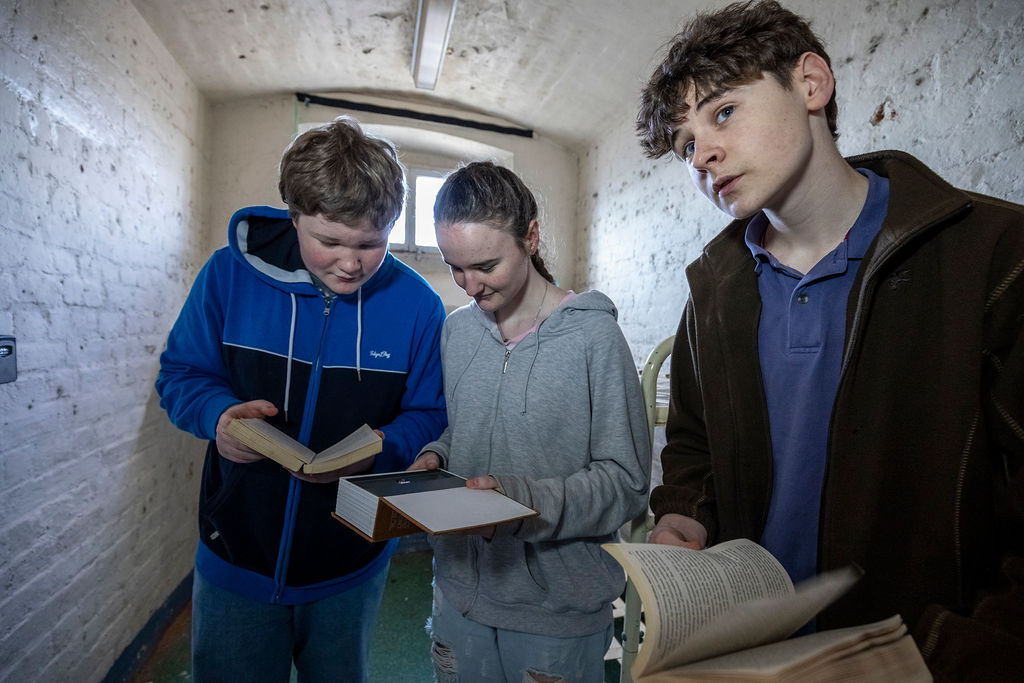Summary: what you can and cannot do during the national lockdown
You must stay at home. The single most important action we can all take is to stay at home to protect the NHS and save lives.
You should follow this guidance immediately. The law will be updated to reflect these new rules.
Leaving home
You must not leave, or be outside of your home except where necessary. You may leave the home to:
- shop for basic necessities, for you or a vulnerable person
- go to work, or provide voluntary or charitable services, if you cannot reasonably do so from home
- exercise with your household (or support bubble) or one other person, this should be limited to once per day, and you should not travel outside your local area.
- meet your support bubble or childcare bubble where necessary, but only if you are legally permitted to form one
- seek medical assistance or avoid injury, illness or risk of harm (including domestic abuse)
- attend education or childcare – for those eligible
Colleges, primary and secondary schools will remain open only for vulnerable children and the children of critical workers. All other children will learn remotely until February half term. Early Years settings remain open.
Higher Education provision will remain online until mid February for all except future critical worker courses.
If you do leave home for a permitted reason, you should always stay local in the village, town, or part of the city where you live. You may leave your local area for a legally permitted reason, such as for work.
If you are clinically extremely vulnerable you should only go out for medical appointments, exercise or if it is essential. You should not attend work
Meeting others
You cannot leave your home to meet socially with anyone you do not live with or are not in a support bubble with (if you are legally permitted to form one).
You may exercise on your own, with one other person, or with your household or support bubble.
You should not meet other people you do not live with, or have formed a support bubble with, unless for a permitted reason.
Stay 2 metres apart from anyone not in your household.
When you can leave home
You must not leave or be outside of your home except where you have a ‘reasonable excuse’. This will be put in law. The police can take action against you if you leave home without a ‘reasonable excuse’, and issue you with a fine (Fixed Penalty Notice).
You can be given a Fixed Penalty Notice of £200 for the first offence, doubling for further offences up to a maximum of £6,400.
A ‘reasonable excuse’ includes:
- Work – you can only leave home for work purposes where it is unreasonable for you to do your job from home, including but not limited to people who work within critical national infrastructure, construction or manufacturing that require in-person attendance
- Volunteering – you can also leave home to provide voluntary or charitable services.
- Essential activities – you can leave home to buy things at shops or obtain services. You may also leave your home to do these things on behalf of a disabled or vulnerable person or someone self-isolating.
- Education and childcare – You can only leave home for education, registered childcare, and supervised activities for children where they are eligible to attend. Access to education and children’s activities for school-aged pupils is restricted. See further information on education and childcare. People can continue existing arrangements for contact between parents and children where they live apart. This includes childcare bubbles.
- Meeting others and care – You can leave home to visit people in your support bubble ( if you are legally permitted to form one), to provide informal childcare for children under 14 as part of a childcare bubble (for example, to enable parents to work, and not to enable social contact between adults), to provide care for disabled or vulnerable people, to provide emergency assistance, to attend a support group (of up to 15 people), or for respite care where that care is being provided to a vulnerable person or a person with a disability, or is a short break in respect of a looked-after child.
- Exercise – You can continue to exercise alone, with one other person or with your household or support bubble. This should be limited to once per day, and you should not travel outside your local area.You should maintain social distancing. See exercising and meeting other people.
- Medical reasons – You can leave home for a medical reason, including to get a COVID-19 test, for medical appointments and emergencies.
- Harm and compassionate visits – you can leave home to be with someone who is giving birth, to avoid injury or illness or to escape risk of harm (such as domestic abuse). You can also leave home to visit someone who is dying or someone in a care home (if permitted under care home guidance), hospice, or hospital, or to accompany them to a medical appointment.
- Animal welfare reasons – you can leave home for animal welfare reasons, such as to attend veterinary services for advice or treatment.
- Communal worship and life events – You can leave home to attend or visit a place of worship for communal worship, a funeral or event related to a death, a burial ground or a remembrance garden, or to attend a wedding ceremony. You should follow the guidance on the safe use of places of worship and must not mingle with anyone outside of your household or support bubble when attending a place of worship.Weddings, funerals and religious, belief-based or commemorative events linked to someone’s death are all subject to limits on the numbers that can attend, and weddings and civil ceremonies may only take place in exceptional circumstances.
There are further reasonable excuses. For example, you may leave home to fulfil legal obligations or to carry out activities related to buying, selling, letting or renting a residential property, or where it is reasonably necessary for voting in an election or referendum.
Exercising and meeting other people
You should minimise time spent outside your home.
It is against the law to meet socially with family or friends unless they are part of your household or support bubble. You can only leave your home to exercise, and not for the purpose of recreation or leisure (e.g. a picnic or a social meeting). This should be limited to once per day, and you should not travel outside your local area.
You can exercise in a public outdoor place:
- by yourself
- with the people you live with
- with your support bubble (if you are legally permitted to form one)
- in a childcare bubble where providing childcare
- or, when on your own, with 1 person from another household
Public outdoor places include:
- parks, beaches, countryside accessible to the public, forests
- public gardens (whether or not you pay to enter them)
- the grounds of a heritage site
- playgrounds
Outdoor sports venues, including tennis courts, golf courses and swimming pools, must close.
When around other people, stay 2 metres apart from anyone not in your household – meaning the people you live with – or your support bubble. Where this is not possible, stay 1 metre apart with extra precautions (e.g. wearing a face covering).
You must wear a face covering in many indoor settings, such as shops or places of worship where these remain open, and on public transport, unless you are exempt. This is the law. Read guidance on face coverings.
Travel
You must not leave your home unless you have a reasonable excuse (for example, for work or education purposes). If you need to travel you should stay local – meaning avoiding travelling outside of your village, town or the part of a city where you live – and look to reduce the number of journeys you make overall. The list of reasons you can leave your home and area include, but are not limited to:
- work, where you cannot reasonably work from home
- accessing education and for caring responsibilities
- visiting those in your support bubble – or your childcare bubble for childcare
- visiting hospital, GP and other medical appointments or visits where you have had an accident or are concerned about your health
- buying goods or services that you need, but this should be within your local area wherever possible
- outdoor exercise. This should be done locally wherever possible, but you can travel a short distance within your area to do so if necessary (for example, to access an open space)
- attending the care and exercise of an animal, or veterinary services
If you need to travel, walk or cycle where possible, and plan ahead and avoid busy times and routes on public transport. This will allow you to practice social distancing while you travel.
Avoid car sharing with anyone from outside your household or your support bubble. See the guidance on car sharing.
If you need to use public transport, you should follow the safer travel guidance.
For more information and guidance please visit: https://www.gov.uk/guidance/national-lockdown-stay-at-home









